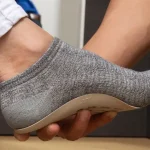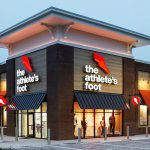Foot Locker Inc. last week bolstered its position with a broader range of the young male target demographic by reaching an agreement to acquire CCS, a leading skate catalog and e-commerce business. Perhaps even bigger, some feel the deal may open the door for Foot Locker to gain greater access to hot skate brands for its core stores.
“We believe that expanding our offerings in the skateboard category will allow us to broaden our appeal to the teenaged male, providing an exciting growth opportunity for our company,” stated Matthew Serra, chairman and CEO of Foot Locker, Inc.
Foot Locker, Inc. will pay $102 million in cash to acquire the business from Delia*s, Inc. With CCS revenues expected to exceed $80 million in 2009, Foot Locker, Inc. expects the deal to be accretive to FL earnings in its first full year of operation. The deal is expected to close within 60 days.
Promoted as “The Worlds Largest Skateboard Shop,” CCS sells a wide assortment of footwear, t-shirts and hardgoods, as well as apparel and accessories, in the skate and snow sports categories. The line-up includes well-known board sport names such as Element, DC, Adio, Fallen, Emerica, Volcom and Nike SB, as well as its own CCS brand. In 2007, CCS circulated approximately 18.3 million catalogs. The target customer of CCS is a teenage boy who actively skateboards. Girls items were only added last year.
With many of the best core skate shops located on the coasts, CCS is given credit for introducing action sports brands to Middle America and other markets where skate shops arent located.
“They have a lot of authenticity in the marketplace,” said Andy Tompkins, group show director for the Action Sports Retailer (ASR) trade show, during a conversation with Sports Executive Weekly.
Founded in 1985 in San Luis Obispo, CA and originally called California Cheap Skates, CCS is now based in New York City, led by Susan Van Arsdale, who will remain with CCS as managing director.
While industry observers were certainly more fixated on whether Foot Locker now would be getting skate brands, the CCS business is particularly expected to benefit from the deeper financial pockets of Foot Locker versus that of Delia*s, which sold the business to strengthen its balance sheet. CCS is also expected to benefit from the success of Eastbay, Foot Locker’s most profitable division, as well as Foot Locker’s deep management expertise.
“Irregardless of whether Foot Locker gets access to more skate brands, this makes complete strategic and accretive sense for Foot Locker,” said Dick Baker, president of SIMA. “The woman who runs CCS is highly thought of and this will give CCS access to cash and more expansion possibilities.”
For Foot Locker, the acquisition enables the company to capitalize on the huge and still growing skate market. According to retail point-of-sale data compiled by SportsScanINFO, skate footwear sales equaled basketball sales for the month of August.
“Skate is now fully established as a major legitimate category,” said Matt Powell, senior retail analyst at SportsOneSource, parent of SportScanINFO. “Foot Locker was late to the game and has been, until now, closed out [of the core brands].” Powell also sees the acquisition as a “great opportunity” for Foot Locker to leverage its Eastbay direct mail business.
“They will be able to eliminate redundancies, and Eastbay already sells a lot of core skate brands,” said Powell. Among Eastbay’s core skate brands are DC, Nike 6.0, Lakai, Etnies, eS, Circa, Adio and Vans.
John Shanley, analyst at Susquehanna Financial Group, called the acquisition a “very positive” move for Foot Locker that capitalizes on Eastbay’s success.
“The company should be able to leverage its highly profitable Eastbay division to help drive future sales growth for CCS, which already enjoys a loyal following of male teen consumers,” said Shanley. “In addition, we expect the proposed acquisition to position Foot Locker as one of the leading direct retailers of skate-inspired products, a category that has experienced rapid growth over the last several years.”
Shanley expects the CCS division should be able to achieve an operating margin comparable to FLs direct-to-consumer division, which has historically been in the 10% to 12% range. Given managements expectations for $80 million in sales for fiscal 2009, he expects CCS could be accretive to earnings by up to 5 cents a share in FY09.
“Importantly, however, we believe the proposed transaction has the potential for significant sales and earnings growth over the long term, as we expect the company to leverage its Eastbay division to further establish CCS as the leading direct-to-consumer marketers in the skate category,” said Shanley.
Powell cited other potential scenarios for the acquisition, speculating that brick n mortar CCS stores could be opened to compete with Journeys and Zumiez. The CCS private label brand, which includes edgy jeans, jackets, T-shirts and hoodies, may wind up on the shelves of Foot Locker stores to help rejuvenate its apparel business.
Shanley and Powell both said Foot Locker could attempt to leverage the CCS relationships with action sports brands to bring more skate brands to Foot Locker. However, some action sports industry participants that spoke with SEW appeared wary of the dominant athletic footwear chain coming into their space.
Said one skate exec that sells to CCS but not FL, “Well obviously be speaking with CCS to establish whether there are any changes to their model, but for the moment, our approach will be to carry on as before.”
SIMAs Baker said that although he certainly doesnt see “everybody jumping on the bandwagon” to do business at Champs and Foot Locker, “there is clearly a partnership opportunity here. You potentially will have access to all the Foot Locker’s doors in the U.S. and in Europe.”
He adds, “[Foot Locker] is a well-run footwear operation and the Sole Technologys and the DCs of the world really value their distribution channel. So Im sure theyre looking very hard at CCS to see if they can work out a strategy to get to Foot Locker and Champs. Maybe it has to be through a sub-brand but there are so many ways to do this.”
And there was little concern that action sports brands would pull out of selling to CCS because it would be owned by Foot Locker. Instead, Mike Regan, etnies brand director, said the acquisition validates the action sports opportunity.
“This acquisition demonstrates that Foot Locker saw the value in the core and action sports lifestyle categories! As a skate and action sports based company, Im optimistic that CCS will thrive under a company like Foot Locker and that they will be given the resources to make CCS an even stronger partner for etnies.”
Regan added that in conversations with CCS, the etnies sales team found “they were really excited about the acquisition and have a lot of confidence that it will allow for more autonomy in making CCS even better!”
For its part, Foot Locker is putting a major emphasis behind the action sports category this fall. Its Champs division, for example, recently added Osiris, Zoo York and NSS as well as a Nike skate exclusive as part of a “major focus” around skate. Its flagship Foot Locker nameplate has put up 600 dedicated skate-lifestyle walls around product such as Nike Dunk and Chuck Taylor.
Tompkins noted that some action sports brands are already giving their larger and smaller stores different product, and believes there’s a way to reach this growing action sports customer through “multiple levels of price points as well as multiple levels of experience.”
Typical of other areas, consumers would buy the most basic product available at mainstream retailers, and then graduate up to specialty stores for better product. He also believes greater exposure should also increase action sports participation.
“I think you can attract more enthusiasts by just having product sold in as many areas as possible,” said ASRs Tompkins.
Nonetheless, Tompkins noted that the ASR trade show works to keep the specialty retailer healthy and the consolidation may put some pressure on smaller and undercapitalized players. But just as in other retail sectors, the nimbler ones will figure out a way to further differentiate themselves to continue to thrive.
“Overall I think [the consolidation is] a good thing because it’s gong to infuse some capital and ideas into the market,” said Tompkins. “It can be scary and challenging and very emotional. You sort of feel like theyre coming into our world and buying into it. But in the long term, it does bring more opportunities because it’s bringing more eyes to the category.”















